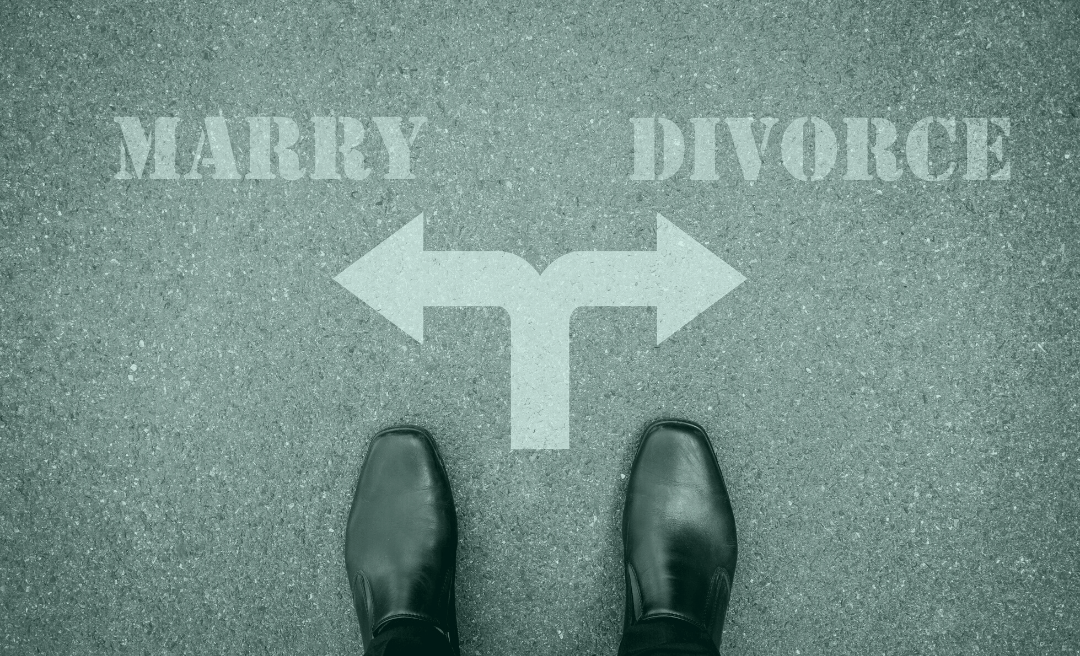Deciding to divorce doesn’t mean you didn’t try. Getting to this decision can be a heart-wrenching journey, one that typically doesn’t happen overnight. For many, it’s a culmination of trying. This is often a long, strenuous exertion of effort, love, and hope to save the relationship. It’s a difficult, deeply personal decision that comes after sleepless nights, tearful conversations, and moments of helpless despair. If you’re navigating through this emotional storm, it’s important to know that you’re not alone and that your feelings of uncertainty, guilt, or sorrow are not only common but also completely valid.
A Difficult Choice
It’s quite possible that you’ve invested immense emotional energy and time in trying to make your marriage work. Sometimes it feels like a solitary journey where you are the only one pulling the weight. This can leave you feeling abandoned and alone in your attempts. And now, when you’ve finally made the difficult choice to seek a divorce, guilt might be your unwelcome companion. You might even question whether you are abandoning your marriage the way you felt abandoned.
Remember, it’s important to acknowledge your effort, perseverance, and endurance! Recognize the validity of your feelings and the genuine efforts you put into trying to mend and sustain your relationship before ever deciding to divorce.
You may also be experiencing the sudden willingness of your partner to try, change, or go to counseling now that divorce is on the horizon. This newfound effort on their part can further complicate emotions. It’s bittersweet. What you’ve been yearning for is finally happening, but it feels too late. The pain, the past, and the disappointments might weigh heavily, making it challenging to believe or hope for a turnaround.
The Divorce Path Is Not Linear
Divorce is often filled with doubts and moments of indecisiveness. Here are a few ways to navigate these challenging feelings to help you move forward with clarity and peace:
- Acknowledging Your Efforts: Allow yourself to recognize and appreciate the work you have done in the relationship. You have tried, cared, and invested, and it’s essential to give yourself credit for that.
- Validating Your Emotions: Your feelings are valid. Guilt, uncertainty, and sorrow are natural reactions after deciding to divorce. Allow yourself to feel, process, and gradually heal.
- Seeking Professional Guidance: Consider engaging with a mental health professional. Therapy can offer a supportive space to navigate your emotions, providing strategies to cope with guilt and indecisiveness.
- Establishing Boundaries: As you navigate through the decision, establish clear emotional and communicational boundaries with your spouse. This will help foster your well-being and clarity.
- Prioritizing Your Well-Being: Going through a divorce can be emotionally and physically draining, so it’s important to prioritize your health and well-being. Engage in activities that promote your happiness and peace, whether it’s practicing mindfulness, journaling, exercising, or spending time with loved ones.
- Finding Support: Reach out to supportive friends, family, or online communities. Our Split.fyi Coffee Talk is a great place to turn! Sharing and listening to others’ experiences can be incredibly comforting and insightful.
- Reframing the Narrative: Instead of viewing the decision as a failure, try to see it as a courageous step towards a happier, more peaceful life. You’re choosing a path that honors your well-being and happiness.
While navigating the wide range of emotions divorce brings is not easy, remember that you don’t have to walk this path alone. The journey of trying, the pain, and the hope are chapters of your story, but they don’t define your entire narrative. Give yourself grace as you turn the page to your next chapter.




